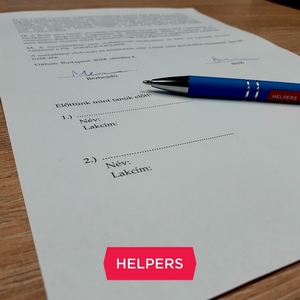
Last updated on 14 January 2022.
For up to date information, please refer to our latest article on the topic. Click here.
While Hungary remains relatively little affected by the ongoing coronavirus pandemic, which is in part thanks to the high vaccination rate of the population, there have been few changes since our last update in August. Read on to find out what has changed.
The state of emergency (which was supposed to end on 4 October) was again extended, this time until 1 January 2022. In line with this, documents expired since 4 November 2020 continue to be accepted as valid in Hungary. However, please note that since the expiry date on the documents themselves does not change, they might not be accepted abroad.
Rules for entering Hungary remain unchanged. While entry to Hungary remains restricted, there are many exemptions. To sum it up:
Read in detail about the exemptions here.
Wearing a mask is still not obligatory in public spaces, shops, or in public transport, but you do need to wear a mask when visiting a healthcare facility or a nursing home. However, with the impending fourth wave of the coronavirus pandemic, more and more people recommend wearing a mask when in crowded, enclosed spaces, and some universities even made it obligatory on their premises.
For invasive therapies (surgery or dental care) that are not emergency measures and could be postponed, you either need an immunity certificate or a negative PCR test from the last 48 hours. The PCR test is financed by the government for minors (under 18) and for those who did not get vaccinated for a medical reason. Otherwise, you must pay for the test on your own.
Participation at events remains restricted:
The traditional symptoms associated with the COVID-19 infection include fever, dry cough, loss of smell and taste, and shortness of breath. However, since the new, Delta variant of the coronavirus is on the rise, you should learn to recognize some additional symptoms:
In any case, if you are feeling ill, contact your doctor (do not visit at first, just give them a call or write an email), describe your symptoms, and they will be able to tell you what to do next.
The best protection against the current coronavirus (both the original and the newer variants) is getting vaccinated. In Hungary, even foreigners without a Social Security or TAJ number can get vaccinated. You can even make an online appointment for the vaccine of your choice, and 4 months after vaccination you can even apply for a booster shot. You will get an immunity card in your mail, but you can also download it on your phone. You can also apply for an EU Digital Green Certificate at any government office (“kormányablak”) or online.
Helpers Hungary offers assistance related to business, immigration, and various kinds of paperwork to foreigners living in Hungary. With our more than 15 years of experience, we are confident we can offer you tailored solutions. Just fill in the form below, and get in touch today.
Contact us

If you are a U.S. citizen, you can easily move to the EU and gain visa-free access to the Schengen zone. Become a resident or a citizen of Hungary, which is a member of the European Union, and take advantage of your new privileges.
Read More
When you submit forms or create contracts in Hungary, witness signatures might be required on it. But how does that work, and who can be a witness?
Read More